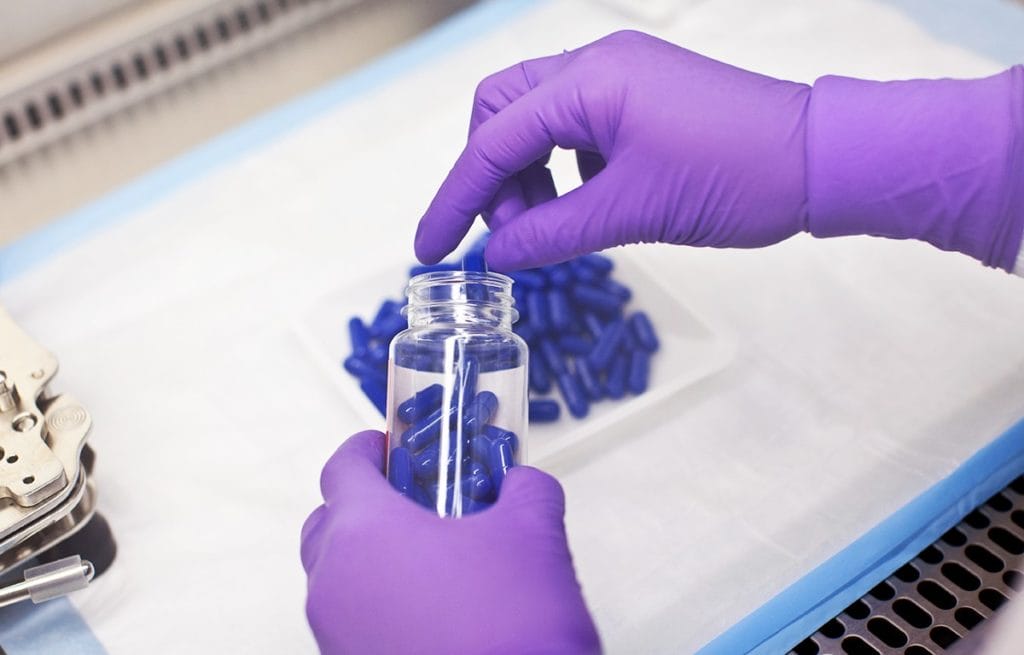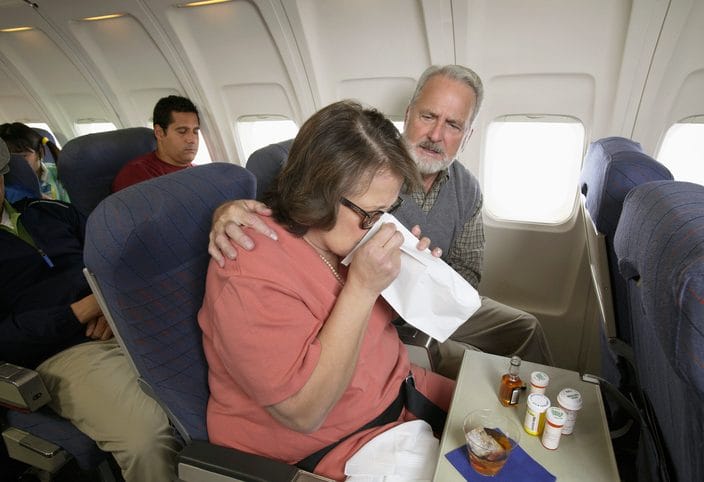
Fecal microbiota transplants (FMT) enabled some with severe peanut allergy to consume up to two peanuts without reacting, early clinical trial results show.
Researchers say the findings are “promising” and may ultimately lead to “microbiome therapy” as a new treatment option for people with food allergies. Additional clinical trials are planned for later this year.
In the Phase 1 trial, 10 peanut-allergic adults consumed capsules containing frozen, processed stool from non-allergic donors. The capsules are tasteless, and the stool is carefully screened to be free of pathogens.
At the start of the study, participants reacted to 100 milligrams of peanut (about half a peanut) or less. Four months later, three of the 10 participants were able to consume 300 milligrams of peanut (about one peanut) before having symptoms of an allergic reaction.
“We have shown we can use fecal transplant in highly allergic patients to increase their tolerance to peanut protein,” said Dr. Rima Rachid, lead investigator and co-director of the Food Allergy Program at Boston Children’s Hospital.
Five additional patients were given antibiotics prior to FMT and had an even better response. After four months, three of the five consumed up to 600 milligrams of peanut (about two peanuts) before having a reaction. By killing off existing gut microbes, antibiotics may clear a “niche” for the beneficial bacteria from the non-allergic donors to establish itself, Rachid says.
“The antibiotics decrease the load of the bacteria in the gut, and there is a higher chance for the non-allergic microbiome to implant itself and have an effect,” said the researcher. “With the antibiotics, there was a better response overall.”
Gut Microbiome and Food Allergies
Previous studies have suggested the gut microbiome, or the communities of bacteria that live inside the intestines, interact with the immune system and may play a role in the development of food allergies.
A study by Rachid and colleagues published in Nature Medicine in 2019 found differences in the bacterial content in the guts of babies with and without food allergies. When researchers transplanted the babies’ stool into mice genetically modified to be egg-allergic, the mice that received the allergic babies’ fecal bacteria went into anaphylaxis when they ate egg protein. However, mice transplanted with fecal bacteria from the non-allergic babies did not.
Fecal microbiota transplant (FMT) is currently used to treat C. difficile colitis, a bacterial infection that causes severe diarrhea and colon inflammation. Originally, FMT for C. difficile infection was given via colonoscopy or nasogastric (NG) tube, which would be “too aggressive” for children with food allergy, Rachid says. When studies showed that FMT given orally was equally as effective, she wanted to try it for food allergies.
The Phase 1, open-label trial presented at the American Academy of Allergy, Asthma & Immunology (AAAAI) annual meeting in Phoenix in late February was the first to test fecal transplantation in people with food allergies. Participants consumed 36 stool capsules over the course of three hours. That amount is considered a single dose of FMT and is about the same dose used to treat C. difficile, Rachid says.
In the trial, FMT was given only once. It is not known how many doses would be needed to maintain protection over the long term.
The stool samples came from OpenBiome, a nonprofit stool bank. To prevent reactions, donors avoided eating any peanuts and tree nuts for one week prior to donating. There were no serious adverse reactions during the trial.
The researchers also tested the effects of FMT in egg-allergy-prone mice. Mice that received stool from participants who benefited from FMT were protected from anaphylaxis when they consumed egg, while the mice that got stool from study participants who did not respond to FMT were not.
Lab tests showed that participants who responded to FMT had increases in regulatory T cells associated with immune tolerance and reductions in T helper cells associated with allergy. “This shows that the therapeutic response to FMT is microbiome-related,” says Rachid.
Phase 2 Trial in the Works
As their next step, Rachid and her colleagues plan to launch a Phase 2 trial in teens ages 12 to 17, using a different form of fecal transplant – a capsule containing highly concentrated bacteria from the guts of healthy donors, but little fecal matter.
Called purified Microbiota Transfer Therapy (MTT), these capsules can be stored in the refrigerator instead of frozen and could be consumed at home instead of in a clinic. MTT might also be more palatable to people turned off by stool capsules.
Rachid hopes to begin enrolling patients by the end of 2022. The study will be done in collaboration with University of Minnesota researcher Dr. Alexander Khoruts, whose team is developing a new liquid microbiota formulation that could come in various flavors. This liquid could potentially be used with young children who can’t swallow capsules, Rachid says.
More needs to be learned about microbiome therapy for food allergies, including more long-term effects, Dr. Brian Schroer, director of allergy and immunology at Akron Children’s Hospital Ohio, told Allergic Living.
“This trial suggests that the intestinal microbial transplant did affect the allergic immune response in humans as well,” he says. However, it’s unknown exactly how or which bacteria were responsible for the changes.
The gut microbiota is incredibly complex, with many types of bacteria and other organisms living in it. Schroer raises the point: “If you’re trying to help the allergy, is there anything from the FMT that could affect other parts of the immune system in an unknown way?”
What’s sure is that the gut microbiome is a ripe area for research. There are several early trials in the works or underway, looking at “bacterial consortiums” – or groups of microbes – to treat or prevent food allergies. These could be used either as stand-alone treatments or in conjunction with oral immunotherapy. Rachid is excited about the possibilities.
Future research will seek to determine if there are specific bacteria in the microbiome that protect from allergies, that could be potentially be used as probiotics, she adds. “This is the tip of the iceberg” for microbiome therapy, she says.
Related Reading:
In Toddlers, OIT Can Lead to Peanut Allergy Remission, Study Finds
Palforzia OIT Study Sees Maturing of Immune System Over Time
AAAAI 2022: Parents Who Feed Peanut to Babies Willing to Try Other Allergens Too





